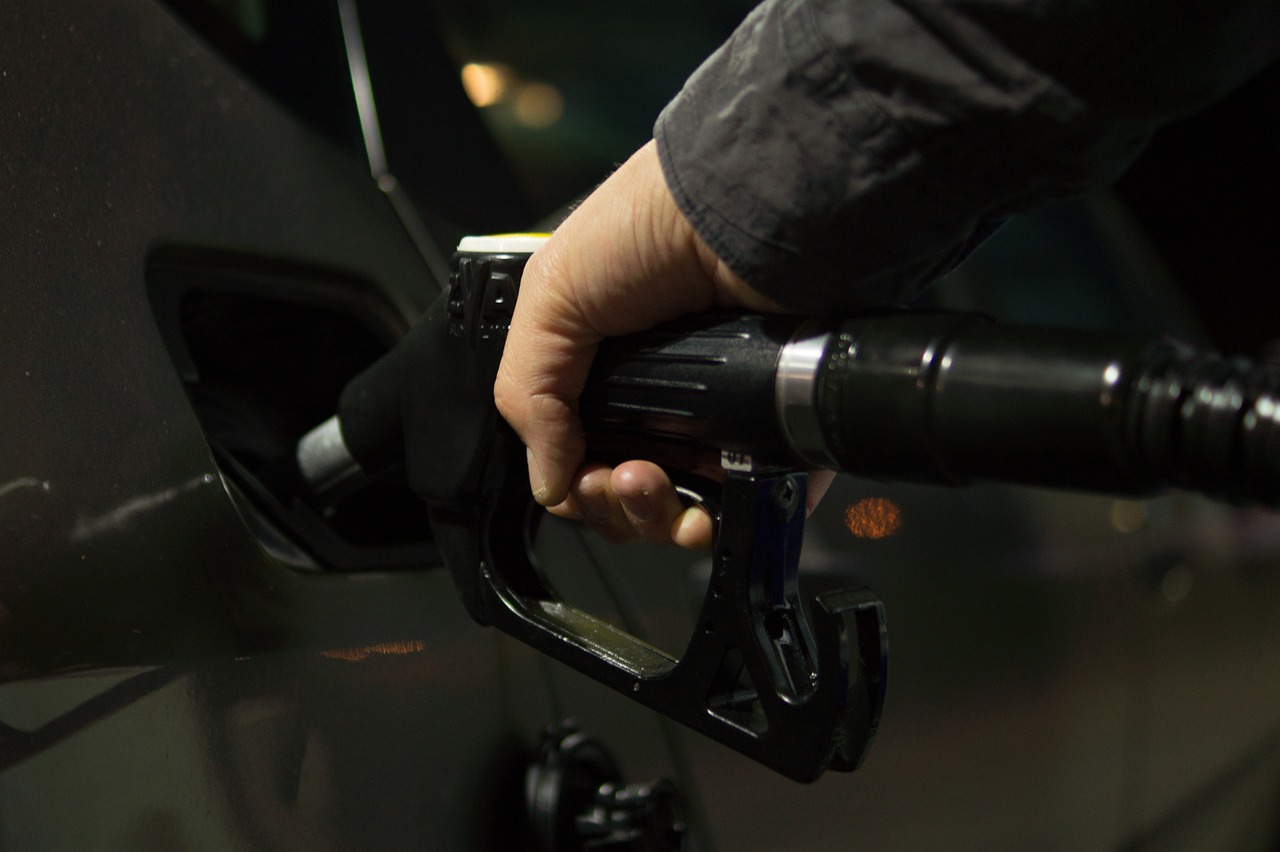As the world shifts toward more sustainable practices, the future of gasoline-powered vehicles is a growing concern. Across the United States, there's an increasing focus on transitioning from gas-powered cars to electric vehicles (EVs). This blog explores whether states are moving towards banning gas cars and what this means for the future of transportation in the US.
The Future of Gas Cars in the US: Are States Moving Towards a Ban?
The shift from gasoline to electric vehicles (EVs) is accelerating, driven by concerns over climate change and the need to reduce carbon emissions. With governments worldwide setting ambitious targets for reducing greenhouse gas emissions, the question arises: Are states in the US moving towards banning gas cars?
Electric Cars vs. Gas Cars: Pros, Cons, and What to Expect
Electric vehicles offer numerous advantages over traditional gas-powered cars, including lower emissions, reduced operating costs, and a quieter driving experience. However, they also come with challenges such as higher upfront costs, limited charging infrastructure, and range anxiety. As states consider a future ban, these pros and cons will play a significant role in shaping the future of transportation.
Are States Phasing Out Gas Cars? A Closer Look
Several states are indeed phasing out gas cars, with California leading the charge. The state has set a target to ban the sale of new gas-powered vehicles by 2035. Other states are following suit, considering similar measures to promote the adoption of electric vehicles. The move is part of a broader effort to combat climate change and reduce dependence on fossil fuels.
The Push to Ban Gas Cars: What It Means for the US
It’s more than just a regulatory shift. It represents a significant transformation in how Americans think about transportation. This shift is likely to accelerate the adoption of electric vehicles, reshape the automotive industry, and impact consumers in various ways.
Electric Cars vs. Gas: Evaluating Your Options
As more states push for gas car bans, consumers will need to evaluate their options carefully. Electric cars are becoming more affordable and practical, but gas cars still offer benefits, especially in areas with limited charging infrastructure. When looking at your options, consider factors like cost, convenience, environmental impact, and long-term viability.
Gas Cars in the US: Are They Being Phased Out?
While gas cars are still dominant in the US, their future is uncertain. The push for electric vehicles, combined with stringent environmental regulations, suggests that gas cars may eventually be phased out. However, this transition is expected to be gradual, with gas cars remaining on the road for many years to come.
Banning Gas Cars in the US: Which States Are Leading the Charge?
California is leading the charge in banning gas cars, with its ambitious plan to eliminate the sale of new gasoline-powered vehicles by 2035. Other states, such as New York and Washington, are considering similar measures. These states are setting a precedent that could influence nationwide policies in the coming years.
Will Gas Cars Be Banned in the US? Key Insights and Impacts
The possibility of a nationwide ban on gas cars in the US is becoming more likely as more states adopt aggressive climate policies. Such a ban would have far-reaching impacts, from the automotive industry to everyday consumers. Understanding these impacts is crucial for anyone who owns a gas car or is considering purchasing one.
Can a Gas Car Be Turned into Electric? Conversion Possibilities
For those who own gas cars, the idea of converting them to electric may seem appealing. While it is technically possible to convert a gas car into an electric one, the process is complex and costly. However, as technology advances, conversions may become more accessible and affordable, offering a viable option for those who want to keep their existing vehicles.
Are Gas-Powered Cars Being Phased Out? What to Expect
The phasing out of gas-powered cars is a slow but inevitable process. As electric vehicles become more popular and governments impose stricter emissions regulations, gas cars will likely become less common. However, this transition will take time, and gas cars will remain a significant part of the automotive landscape for the foreseeable future.
Why Does California Want You to Drive a Gas Car? Unpacking the Regulations
California’s regulations are designed to encourage the adoption of electric vehicles while still allowing room for gas-powered cars during the transition period. The state’s goal is to reduce emissions and promote cleaner transportation options. However, these regulations also recognize the challenges associated with a complete and immediate shift to electric vehicles.

State Bans on Gas Cars: Will Your Vehicle Be Affected?
If you own a gas car, you might be wondering whether these state bans will affect you. While most bans focus on the sale of new gas cars, existing vehicles are generally exempt. However, the impact on resale values, fuel availability, and maintenance costs should be considered as more states move towards banning gas cars.
Are Gas Cars Here to Stay? Analyzing the Push for Electric Vehicles
Gas cars are not likely to disappear overnight. Despite the push for electric vehicles, gas-powered cars will continue to be used, particularly in areas with limited access to charging infrastructure. The transition to electric vehicles will be gradual, with gas cars remaining an essential part of the transportation ecosystem for years to come.
Is a Gas Car Ban Coming to the US? Understanding the Future of Gasoline Cars
The prospect is becoming increasingly likely as states adopt more aggressive climate policies. Understanding what this means for consumers and the automotive industry is essential for making informed decisions about vehicle purchases and ownership.
Which States Are Banning Gasoline Cars? A Comprehensive List
Currently, California is leading the charge with its ban on new gas-powered vehicles by 2035. Other states considering similar measures include New York, Washington, and Massachusetts. These states are setting the stage for a broader national conversation about the future of gas cars in the US.
Will the Ban be Nationwide? Expected Timelines
While a nationwide ban on gas cars is not yet in place, it is likely to be a topic of discussion in the coming years. If more states follow California’s lead, a federal mandate could emerge, potentially targeting the 2040s as a timeline for a nationwide ban on new gas-powered vehicles.
What Does the Ban Mean for Consumers?
For consumers, it would mean a significant shift in how vehicles are bought, sold, and maintained. As the availability of gas cars diminishes, consumers will need to adapt by embracing electric vehicles or exploring alternative transportation options.

Are Gas Cars Going Away for Good? Long-Term Impacts
While they may eventually be phased out, they are unlikely to disappear entirely. Classic car enthusiasts, rural drivers, and those with specific needs may continue to use gas cars for many years. However, their prevalence will likely decline as electric vehicles become the norm.
California's Gasoline Car Ban: What You Need to Know
California’s decision to ban the sale of new gasoline cars by 2035 is a landmark moment in the push for cleaner transportation. This move is expected to have significant implications for the state’s drivers, the automotive industry, and other states considering similar policies.
Why Is California Banning Gas Cars? An In-Depth Look
It’s being driven by the state’s commitment to reducing greenhouse gas emissions and combating climate change. The ban is part of a broader strategy to transition to zero-emission vehicles and promote cleaner, more sustainable transportation options.
When Will Gasoline Cars Be Banned in The Golden State? Key Dates
California’s ban will take effect in 2035. This timeline allows for a gradual transition to electric vehicles, giving consumers and the automotive industry time to adapt to the new regulations.
How Will the Ban Affect California Drivers?
The gas car ban will primarily affect new car purchases, with existing cars still allowed on the road. However, as the state moves towards electric vehicles, drivers may face challenges related to fuel availability, maintenance, and resale values.
Will You Still Be Able to Drive Gasoline Cars in California After the Ban?
Yes, you will be able to drive gasoline cars in California after the ban. The regulations focus on the sale of new vehicles, meaning that existing gas cars will remain legal to drive. However, the long-term viability of owning a gas car may be impacted by changing market conditions and infrastructure.
Will Other States Follow California in Banning Gas Cars?
California’s influence on environmental policy is significant, and other states are likely to follow its lead in banning gas cars. States like New York and Washington have already announced similar plans, and more are expected to join in the coming years.
Gas Car Bans: Are They the Future of Transportation?
Electric vehicles are increasingly being seen as a necessary step in the transition to a more sustainable transportation system. As electric vehicles become more practical and affordable, the question of whether gas cars will have a place in the future is becoming more pressing.

Which Countries Are Also Banning Gas Cars? Global Overview
Countries like the UK, France, and Norway are leading the way in posing similar bans, with some aiming to eliminate new gas car sales as early as 2025. These bans are part of global efforts to reduce carbon emissions and promote cleaner energy sources.
How Will Such a Ban Impact the Automotive Industry?
It’s expected to have a profound impact on the automotive industry, pushing manufacturers to accelerate the development of electric vehicles. Traditional automakers will need to adapt to new technologies and market demands, while new players in the electric vehicle space could gain significant market share.
Are Electric Cars Ready to Replace Gasoline Cars?
While electric cars have made significant strides in recent years, challenges remain. Issues like charging infrastructure, battery technology, and cost still need to be addressed. However, with ongoing advancements, electric cars are becoming increasingly viable replacements.
What Are the Alternatives Post-Ban?
In a post-ban world, consumers will have several alternatives to gas cars, including electric vehicles, hydrogen fuel cell vehicles, and public transportation. The development of these alternatives will be crucial to ensuring a smooth transition away from gasoline-powered cars.
The Impact of Banning Gasoline Cars: What to Expect
Banning gasoline cars will have wide-ranging effects, from environmental benefits to economic challenges. Understanding these impacts is essential for policymakers, businesses, and consumers as they navigate the transition to electric vehicles.
Why Is the Ban Happening Now? Environmental Concerns
The ban is driven by the urgent need to address climate change and reduce air pollution. Transportation is a significant source of greenhouse gas emissions, and transitioning to electric vehicles is seen as a critical step in reducing these emissions.
How Will the Ban Affect the Economy?
The ban will have both positive and negative economic impacts. While it could lead to job losses in traditional automotive and oil industries, it also presents opportunities for growth in the electric vehicle sector, renewable energy, and green technology.
Will Gasoline Be Banned As Well?
While the focus is currently on banning gas cars, the future of gasoline itself is uncertain. As electric vehicles become more prevalent, demand for gasoline will decline, potentially leading to reduced availability and higher prices for remaining users.
What Happens to Existing Gas Cars After the Ban?
Existing gas cars will likely remain legal to drive after the ban, but their owners may face challenges related to maintenance, fuel availability, and resale value. Over time, these vehicles may become less practical to own and operate.
How Will the Ban Change Daily Commutes?
It will change daily commutes by encouraging the use of electric vehicles and alternative transportation options. As charging infrastructures improves and electric vehicles become more common, commuting patterns are expected to evolve accordingly.
Banning Gas Cars: How Will It Change Driving in the US?
The ban will fundamentally change how Americans drive, from the types of vehicles on the road to the infrastructure that supports them. Understanding these changes is crucial for preparing for the future of transportation in the US.
What Are the Pros and Cons?
The pros of banning gasoline cars include reduced emissions, improved air quality, and the promotion of sustainable energy. However, there are also cons, such as the potential for increased costs, the need for widespread infrastructure development, and the impact on jobs in traditional industries.
Will Gas Cars Be Banned in Your State?
Whether gas cars will be banned in your state depends on local regulations and environmental goals. States like California and New York are leading the way, but others may follow depending on national trends and policy changes.
What Does the Ban Mean for Car Owners?
For car owners, tit means planning for the future. Whether this involves transitioning to an electric vehicle, exploring conversion options, or considering alternative transportation, understanding the implications of the ban is essential.
Will the Ban on Gas Cars be Permanent? What to Know
The ban on gas cars is intended to permanently shift towards sustainable transportation. However, as technology and market conditions change, the specifics of how this ban is implemented and enforced may evolve over time.
Gasoline Usage in Cars: What You Need to Know
Gasoline remains the dominant fuel source for vehicles, but this is changing. As electric vehicles become more prevalent, the landscape of gasoline usage is expected to shift dramatically.
How Many Cars Still Use Gas?
As of now, the majority of cars in the US still use gasoline. However, the number of electric vehicles is growing rapidly, and this trend is expected to continue as more states adopt bans on gas-powered cars.
How Long Will Gas Cars Be Around?
Gas cars are expected to remain on the road for many years, even as electric vehicles become more prevalent. However, their numbers will likely decline as bans take effect and electric vehicles become the norm.
Will Electric Cars Take Over?
Electric cars are poised to become the dominant form of transportation in the coming decades. With advancements in technology, infrastructure, and affordability, electric vehicles are expected to replace gasoline cars as consumers' primary choice.
In conclusion, the push to ban gas cars in the US is gaining momentum, driven by environmental concerns and the need for sustainable transportation. While gas cars are still prevalent, their future is uncertain as more states adopt aggressive measures to promote electric vehicles. Whether or not these bans will lead to a complete phase-out of gas cars remains to be seen, but it is clear that the automotive landscape is undergoing a significant transformation.






